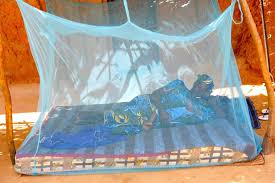Uganda Launches Nationwide Distribution of 28.5 Million Insecticide Mosquito Nets to Combat Malaria
- jeericknews3
- Nov 3, 2023
- 2 min read
In a significant move to combat malaria, the government of Uganda has initiated the countrywide distribution of 28.5 million insecticide-treated mosquito nets.
Internet Photo
According to the World Health Organization (WHO), Uganda currently holds the unfortunate distinction of having the world's highest malaria incidence rate, with 478 cases per 1,000 people per year. Malaria is not only a major health concern but also the leading cause of illness and death in the country. It's estimated that Uganda experiences an annual toll of malaria-related deaths ranging from 70,000 to 100,000, a number that surpasses even the impact of HIV/AIDS.
Lt. Maate Magwara, the Deputy Residents District Commissioner of Kasese in charge of Bukonzo, commends the government's ongoing financial commitment to eradicating malaria in Uganda. He highlights that Kasese District has recently received a supply of mosquito nets, which will be distributed starting next week.
Lt. Magwara emphasizes that malaria is a life-threatening disease transmitted to humans by certain types of mosquitoes, but the good news is that it's preventable and curable. He cautions the public against misusing these nets and encourages their responsible use to effectively curb the spread of malaria.
Mr. Moses Mugisa, the Town Clerk of Mpondwe Lhubiriha town council in Bukonzo West, notes that Chairpersons of Local Councils and Parish Chiefs/Town Agents will play key roles in the distribution of mosquito nets.
He underscores that if communities use these nets correctly, it will not only safeguard their health but also save expenses that would otherwise be spent on malaria medication, allowing resources to be directed towards other vital activities.
Mr. Thomas Teyebwa, the Deputy Speaker of the Parliament of Uganda, previously urged the government to allocate more funds to combat malaria. He emphasized that it is of utmost importance to prevent malaria-related deaths, as providing funds for primary health care wouldn't be meaningful if citizens continue to suffer from this disease.
Mr. Thomas further points out that many Ugandans are economically disadvantaged and unable to combat malaria on their own.
Malaria symptoms include fever, chills, and headaches. Severe symptoms may involve fatigue, confusion, seizures, and difficulty breathing. Infants, children under 5 years of age, pregnant women, travelers, and individuals with HIV or AIDS are at a higher risk of severe malaria infection.




Comments